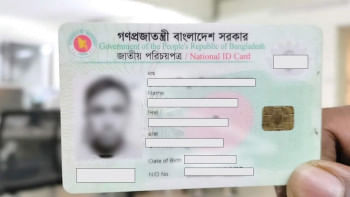Jamaat dodging EC for 3 years
The nemesis of Jamaat-e-Islami began in 2008 when the Election Commission changed the Representation of the People Order (RPO), the legal framework for conducting parliamentary polls, and set a registration criterion for all political parties.
Jamaat had promised to amend its charter in line with the RPO by January 24, 2010 to retain its registration but did not deliver on the pledges.
Even on expiry of the deadline it kept ignoring the EC's repeated calls for amending its charter in last three and a half years.
As per the EC's findings, a number of provisions in Jamaat's charter including the call for establishing rule of Islam through organised efforts and refusal to accept parliament's plenary power to enact laws do not conform to the country's constitution and the RPO.
Jamaat was supposed to lose its status as a registered party as the RPO says a political party will not be qualified for registration if the objectives and provisions in its charter are at variance with those in the country's constitution and the RPO.
But the party managed to retain the registration with the EC as the latter's actions were confined to urging Jamaat to amend its charter.
Registration with the EC was made a prerequisite for every political party to contest the elections through electoral reforms in 2008.
Like other 38 political parties, Jamaat got registered with the EC by making some provisional changes in its charter before the December 29 parliamentary polls. The party then promised to bring more amendments required and ratify the provisional changes at its national council within the timeframe stipulated in the RPO.
The timeframe expired on January 24, 2010. The ruling Awami League, main opposition BNP, Jatiya Party and some other parties delivered on their promises and brought more amendments in their charters in line with the EC's suggestions.
But Jamaat did not do it.
During registration of the political parties in 2008, the EC found some provisions in the Jamaat charter that conflicted with the country's constitution and the RPO.
The EC found that Jamaat's charter disregarded the fundamental feature of the country's constitution in that it did not accept the plenary power of parliament in making laws, saying the people must not accept anyone except Allah as the maker of laws.
In the face of EC's objection, Jamaat had deleted the clause from its provisional amended charter to get registration before the polls. But later it reinstated the clause in its ratified charter, breaching its earlier pledge.
The Jamaat charter still has discriminatory provisions regarding sex and religion as no woman and non-Muslim are allowed to become the party's chief. This provision runs counter to the constitution which prohibits such discrimination.
As per the EC's directive, the party also did not include in the main body of its charter the provision of keeping 33 percent posts reserved for women in all committees at all levels and achieving the goal by 2020.
Jamaat rather mentioned the provision in a special note in the last page of its charter.
The EC informed a High Court bench in April this year about the latest status of Jamaat's charter.
The HC bench yesterday declared Jamaat's registration with the EC illegal.

 For all latest news, follow The Daily Star's Google News channel.
For all latest news, follow The Daily Star's Google News channel. 



Comments